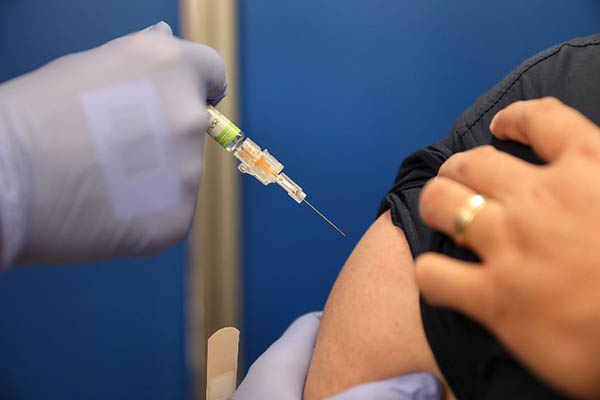
File photo. Joe Raedle-Getty Images North America—AFP
Global health body describes as ‘dangerous trend’ the mixing and matching of various coronavirus vaccines without any data to support it
The World Health Organization (WHO) early on Tuesday warned against the practice of mixing and matching coronavirus vaccines, describing it as a “dangerous trend.”
“It’s a little bit of a dangerous trend here. We are in a data-free, evidence-free zone as far as mix and match,” the global health body’s chief scientist, Soumya Swaminathan, told an online briefing. “It will be a chaotic situation in countries if citizens start deciding when and who will be taking a second, a third and a fourth dose,” she added.
In recent months, several countries have started to adopt a mix-and-match approach—prompted by supply issues, as well as the need for “booster” shots against emerging variants. According to the Reuters news agency, a study conducted in the U.K. also found that adopting a mix-and-match approach could yield a more robust immune response. The study, led by Oxford, found that alternating dosages of the two antibodies produced solid resistance.
“The U.K. currently had enough vaccine supplies to provide two doses of the same vaccine to all adults, so the results of the trial would not have an immediate impact on the country’s vaccination policy,” the U.K.’s deputy chief medical officer had said at the time. He said that the highest antibody response was seen in people receiving two doses of Pfizer vaccine.
“Our non-mixed vaccination program has already saved tens of thousands of lives across the U.K., but we now know mixing doses could provide us with even greater flexibility for a booster program while also supporting countries who have further to go with their vaccine rollouts and who may be experiencing supply difficulties,” he was quoted as saying by Reuters.
Health experts have, however, maintained that in the absence of real-world data, it is inadvisable to mix-and-match, as it is too early to predict what kind of side effects could emerge.
